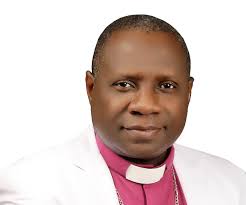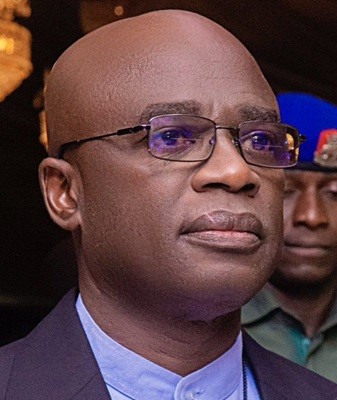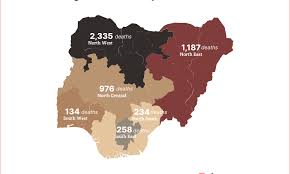INEC has put the Legitimacy of the Presidential Poll Results into Disrepute – NCEC
By Ralph Madugu
Christian elders, under the aegis of the Nigeria Christian Elders Coalition (NCEC), has accused the Independent National Electoral Commission (INEC) of putting the results of the February 25 presidential election into disrepute.
The group said it was unfortunate that after so many years of the country’s democracy and the “great expectation’ recently generated, the Independent National Election (INEC) had dashed the hopes of the people and brought the country to the “point of avoidable crises.”
The NCEC added that it was also pained that Nigeria has been “dragged again to the precipice because of deliberate failure” of INEC to comply with its own regulations and the Electoral Law.
In a letter addressed to President Muhammadu Buhari dated February 28, 2023, titled “2023 General Elections: Urgent Matters of Grave Concern,”, the elders said, “Indeed, a lot of hard work was expended by all the critical stakeholders to produce the electoral law 2022 which makes painstaking provisions to stop desperate and corrupt politicians from perpetrating negative influences at elections with the negative consequences of bad governance and economic hardship.
“We are careful to note that INEC was at the forefront of this advocacy to amend the law to ensure that every vote will be counted and that every vote counts. It was after all these efforts at drafting and re-drafting the law by the National Assembly, that the President signed the new law after much protestation and hesitation by politicians who want an easily manipulatable electoral regime.

“We wish to particularly note that an overwhelming majority of the Nigerian electorate demonstrated unprecedented and commendable ways in showing commitment to see that the 2023 elections, especially the first lap on Saturday, 25th February 2023, were peaceful and successful.
“They showed determination to cast their votes in the most peaceful ways imaginable. They stayed in long queues patiently, some from morning till evening/night and others into the early hours of the following day. Some queued under the rain, others under the scorching sun all in the attempt to cast their votes for the love of country and intentionally to nurture our nascent democracy. Some volunteered and sacrificed their time and other resources to provide logistical support just to see that others cast their votes. This overwhelming desire and interest to elect a President of their choice was very novel in the history of elections in Nigeria. For the first time we witnessed Nigerians eager to make Nigeria work through a peaceful democratic framework. “
The elders added that they had read reports and received briefings from several members who voted, monitored the elections and listened to the preliminary reports of international and domestic observers who lamented the “colossal failure of logistics and integrity of the process provided by law in the conduct of the elections.
“The most distressing aspect in the conduct of the election the elders said, was “the refusal of INEC to electronically transmit the results of voting directly from the polling units to IREV Platform as required by the electoral act.” This failure, they opined was “unbelievable and surprising considering that what is at the heart of the new electoral law is the mandatory electronic transmission of results to enhance the credibility of the process.”
They also stated that INEC had used this “reliable method” during the gubernatorial elections in Anambra, Osun and Ekiti without significant hitches.
In addition, NCEC said INEC demonstrated the reliability of electronic transmission recently and gave assurance that it was ready to use the BVAS for accreditation and transmission of results.
Recalling several instances where the INEC Chairman and the Commissioner in charge of Voters Education had assured the nation that results would be electronically transmitted from the polling units, they, however, expressed shock that many hours after a National election, the Commission could not transmit the results as required.
They stated that this was in addition to “many other fundamental breaches of the electoral law, including late commencement of voting across the country and non-voting in many polling units and widespread reports of logistic failure highlighted by foreign and domestic observers.”
Said NCEC: “The failure to comply with the electoral law and INEC’s regulation and guidelines on the conduct of elections, particularly Section 60 of the Electoral Act 2022 and Clause 38 of the Regulation and Guidelines for the Conduct of Elections 2022. These laws make it mandatory to electronically transmit the results of elections from the polling units.
“In the light of these flagrant violations of the law regarding the conduct of the elections, which include (but not limited to) voting by under-aged children; collusion with the security agencies, in several documented cases, to perpetuate violence; and the fraudulent tempering and falsification of results, through this manual collation process, INEC had put the legitimacy of the 2023 Presidential election results into terrible disrepute.”
While calling on INEC to explain to Nigerians the administrative action it would take in the circumstances of “grave violation of the electoral law” and the administrative actions it would take to rectify the “breach of integrity of the 2023 presidential and National Assembly elections,” the NCEC assured that, as Christian leaders, they would continue to pray for the peace and unity of Nigeria, urging the Commission to do everything within its power to restore the integrity of the electoral process in Nigeria.





Post Comment